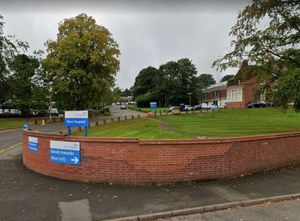'No confirmed illnesses' after Legionella bacteria levels close Wolverhampton hospital
There are currently no confirmed cases of illnesses caused by the Legionella bacteria after "increased levels" were discovered at a hospital, health chiefs have said.

NHS bosses have moved to reassure people after the bacteria was discovered in the water system at Penn Hospital, on Penn Road in Wolverhampton, on Sunday, forcing its temporary closure.
Legionella is a bacteria which can give rise to mild flu-like illness known as Pontiac fever – and a serious type of lung infection known as Legionnaires' disease.
It was confirmed by the Black Country Healthcare NHS Foundation Trust that the bacteria was identified in the water system following routine water testing.
The discovery led to patients being moved temporarily whilst urgent works were undertaken to rectify the situation, with the issue being monitored "closely".
Bosses at the NHS trust have moved to reassure people that no cases have been confirmed and they are liaising with families, staff and carers to keep them informed.
A spokeswoman said: "We want to reassure patients and the community that there are currently no confirmed cases, but we continue to monitor the situation closely."
On Monday a source told the Express & Star that a worker at the hospital had become unwell and staff have been advised not to go into work – due to patients and staff having "come down with it".
"My daughter was told there had been an outbreak and patients and staff have come down with it – and the hospital has had to be shut down. The NHS trust emailed Sunday to say the hospital is shut until further notice because of the big outbreak," she said.
It's the second time Legionella bacteria has been detected at the site, eight years after it was found in the water in 2014.
During that occasion access to some sinks, showers and toilets were blocked as a precautionary measure and temporary toilets were installed for patients to use.
Specialist filters were also been fitted on some showers so patients could continue to shower and where necessary bottled drinking water was provided.





